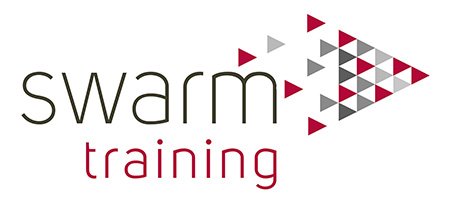
Business Analyst Apprenticeship
Level: 4 / Duration: 15-18 mths
A Business Analyst Apprenticeship trains analysts to document problems and user needs, and create solution requirements that align with best practice. They learn to present them in a meaningful and logical way appropriate to the audience. Business Analysts manage stakeholder relationships, ensuring collaboration between business and technical stakeholders. By focusing on benefits and outcomes, they ensure the right problems are solved and the right products are developed.
In their daily work, a Business Analyst Apprenticeship employee learns to interact with a broad range of stakeholders, including customers, business users, suppliers, product owners, software developers, testers, and senior leaders. These stakeholders include people both internal and external to the organisation.
Assessment
The Business Analyst Apprenticeship training will enable your apprentice to:
Apply structured techniques to investigate wants, needs, problems and opportunities
Document the current situation and apply relevant techniques to structure information
Assist in the development of options and recommendations for change
Model business processes using relevant techniques
Perform business process analysis and improvement
Redesign business process models in order to reflect changes in working practice or deliver improvements
Undertake requirements elicitation with stakeholders to identify business and user needs
Analyse, validate, prioritise and document functional and non-functional requirements for business situations, using relevant techniques
Identify data requirements relating to business improvement
Assist in the management and controlled change of requirements
Support the creation of data models to illustrate how data is represented within a business system
Compare current and future state business situations in order to identify the changes required for business improvement
Define acceptance criteria for business and system changes, and support business acceptance
Identify and analyse stakeholders impacted by a proposed change, understand their perspectives and assess how their interests are best managed
Assess and document the drivers, costs, benefits and impacts of a proposed business change
| A portfolio of evidence of their best work |
| Multiple choice examination – to assess knowledge elements of the standard |
| Project report to explain how they applied their knowledge, skills and behaviours in a project which they have been working on during the course of their apprenticeship programme accompanied by a presentation followed by a Q&A |
| Meet with the independent assessor to have a Professional Discussion underpinned by their portfolio of evidence |
OR
Complete the form below
Knowledge, Skills and Behaviours
There is naturally a full list of the Knowledge, Skills, and Behaviours that are taught and assessed on a Business Analyst Apprenticeship that we can supply you with. As a brief overview, your Level 4 apprentice will learn the following:
-
Legislation and industry standards relevant to the organisation and sector
Data protection regulations and the importance of managing information and data in linewith legislation and organisational policies
Technology and industry trends across the digital sector, and the opportunities thesebring for business improvement and IT solutions
-
The definition of Business Analysis and range of activities
The value of Business Analysis in enabling business improvement
The role of the Business Analyst, and its relationship with other roles in business change
Analyse and document stakeholders' areas of interest and influence
-
Business change, methodologies and system development life cycles
Change impact assessment, testing and sign off
Support the development of cost/benefit analysis for proposed business changes
Project Management for project delivery and software development
Importance of effective communication and engagement with a range of stakeholders
Support the identification and presentation of proposed actions to stakeholders in order to gain agreement for further analysis activity
-
Conducting internal and external environmental analysis of an industry domain
Apply relevant techniques to research and identify stakeholders
The advantages and disadvantages of a range of investigative techniques
Different approaches to document business processes and their importance
Model business processes using relevant techniques, standards, notation and software tools
-
Techniques to elicit requirements
Approaches to categorise, validate and prioritise requirements
Requirements management and change control
Non-functional requirement areas and requirements engineering
Considering user experience, accessibility and usability in digital solutions
Benefits realisation and management
-
The value of data to an organisation, and how data needs are considered in business improvement
The purpose and activities of the gap analysis process
Don't forget. The cost of a Business Analyst Apprenticeship is supplemented by the Government. You can read all about it in our very informative blog post, ''The Cost of Apprenticeships: A Shrewd Investment for Employers'' (click the link to read in full). Alternatively, you may wish to visit the government website to read about the scheme in full. Here is the link for your convenience.


